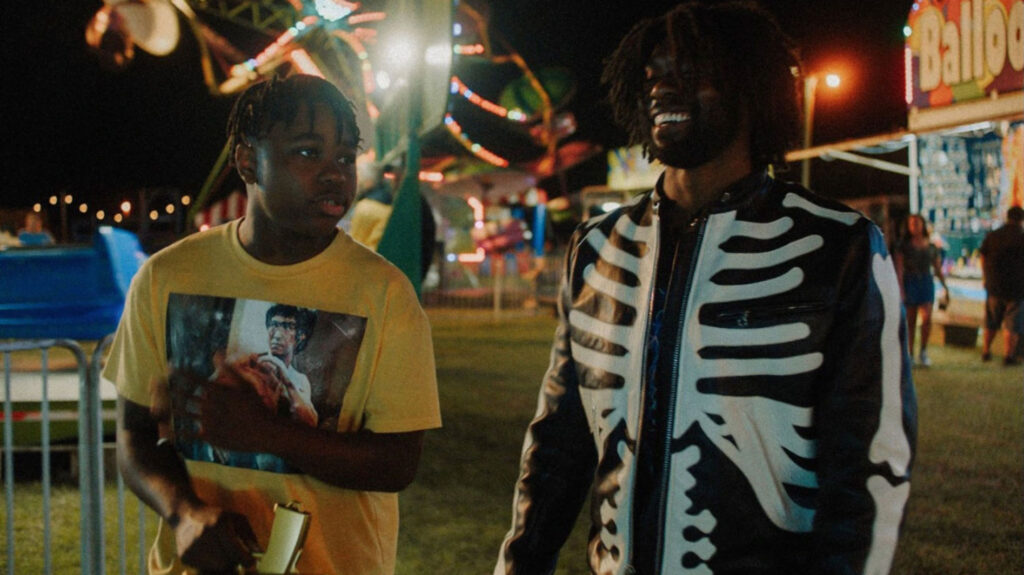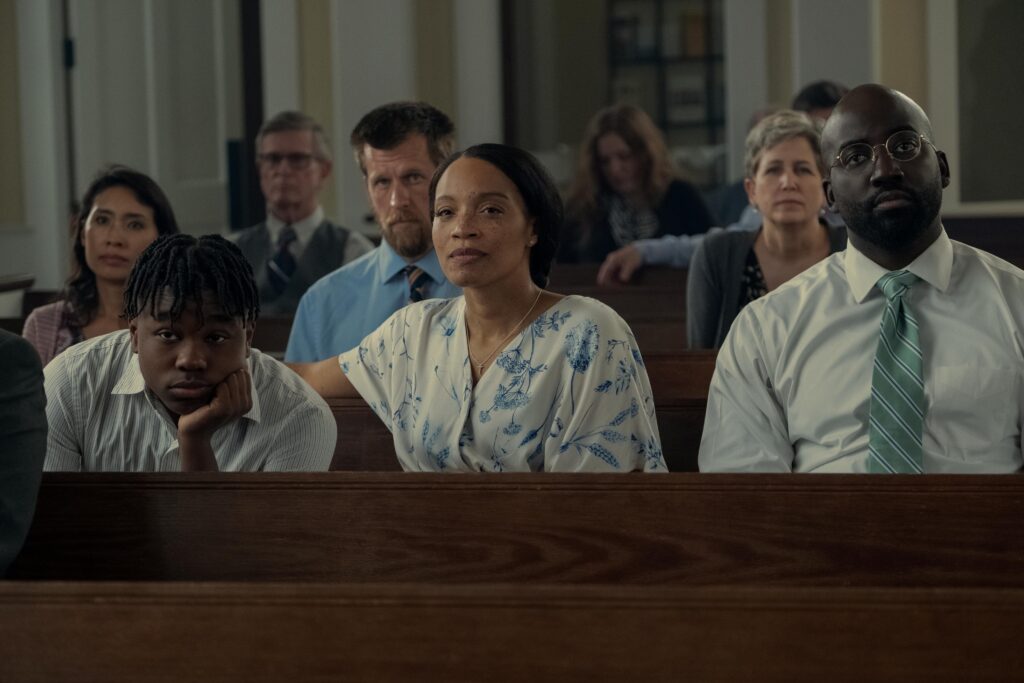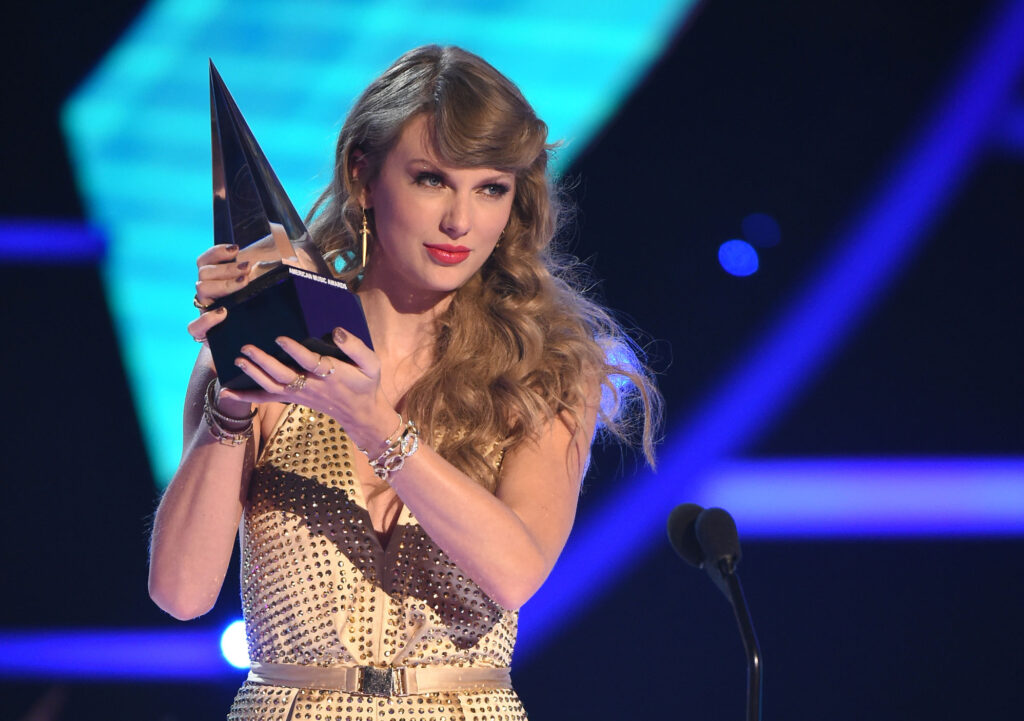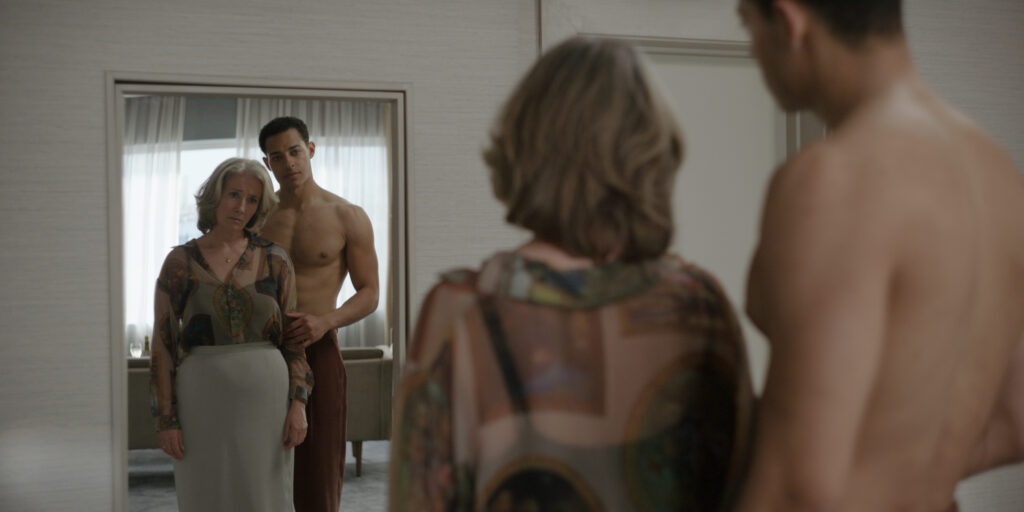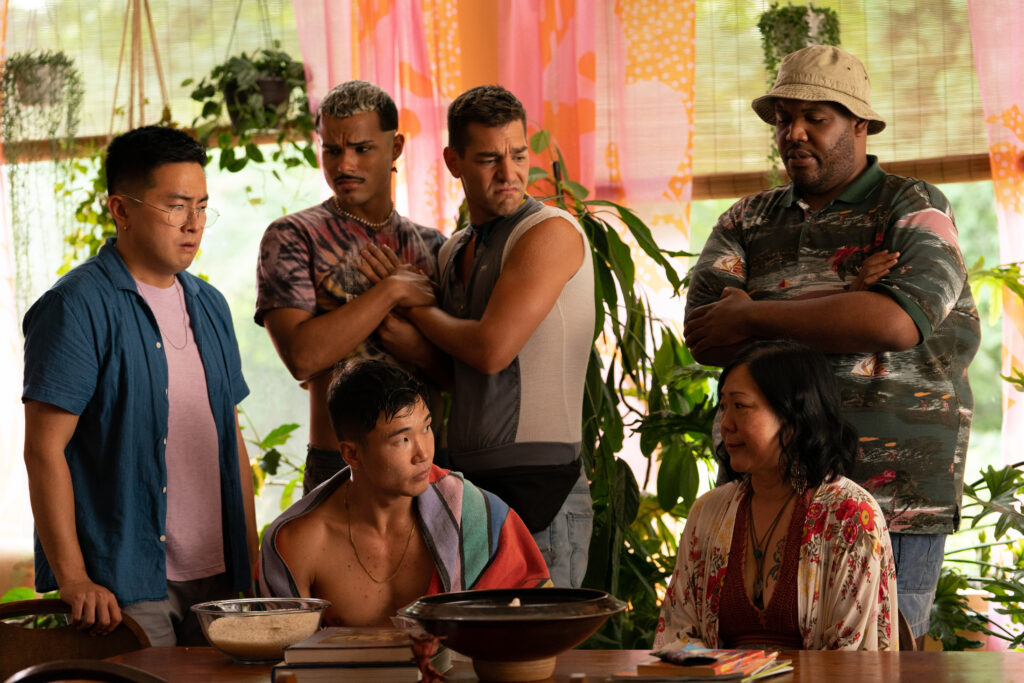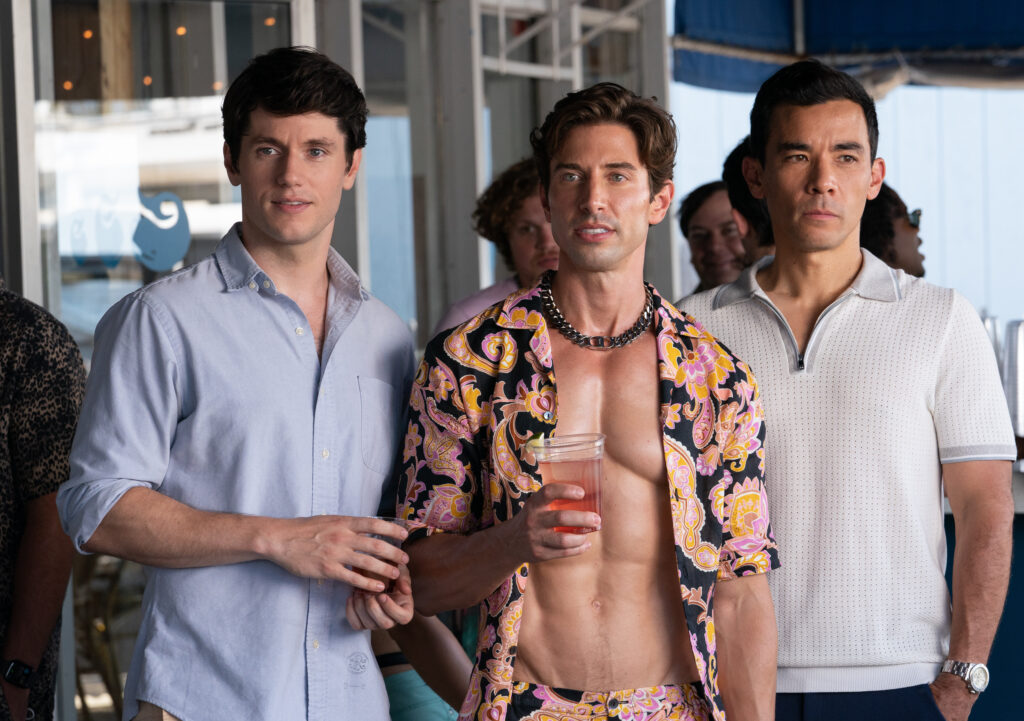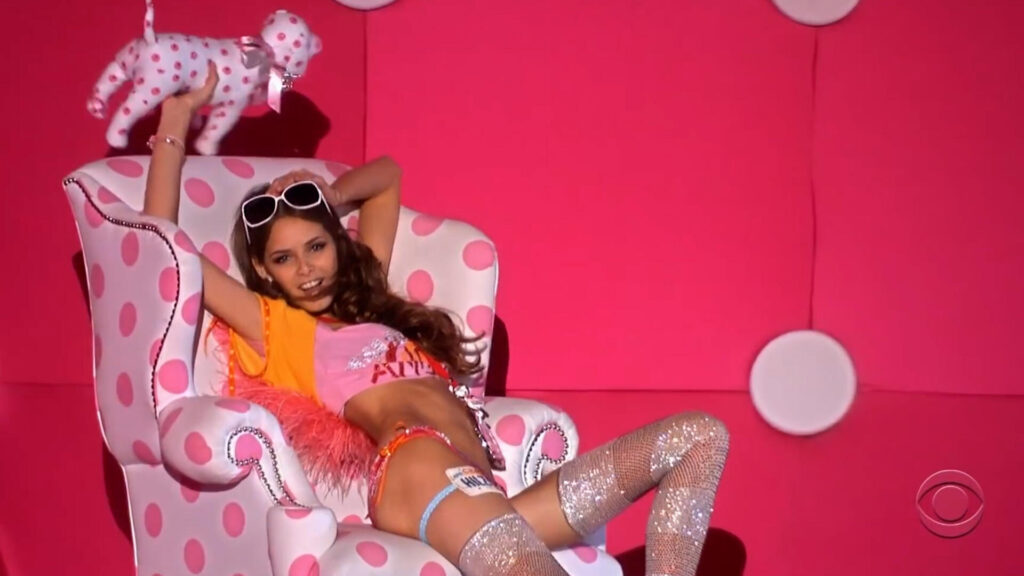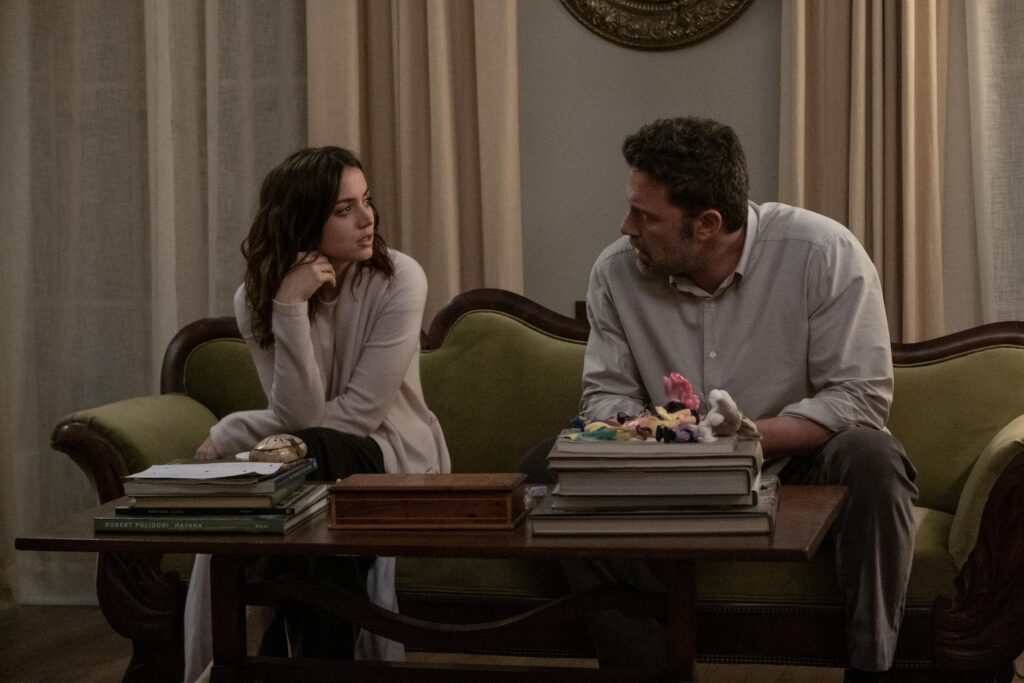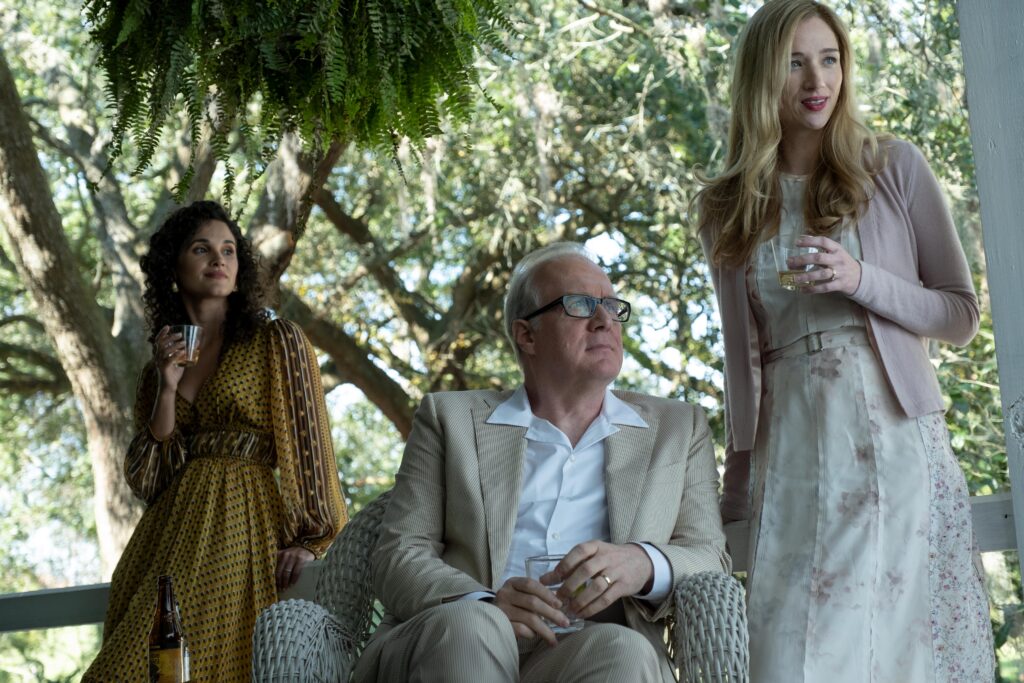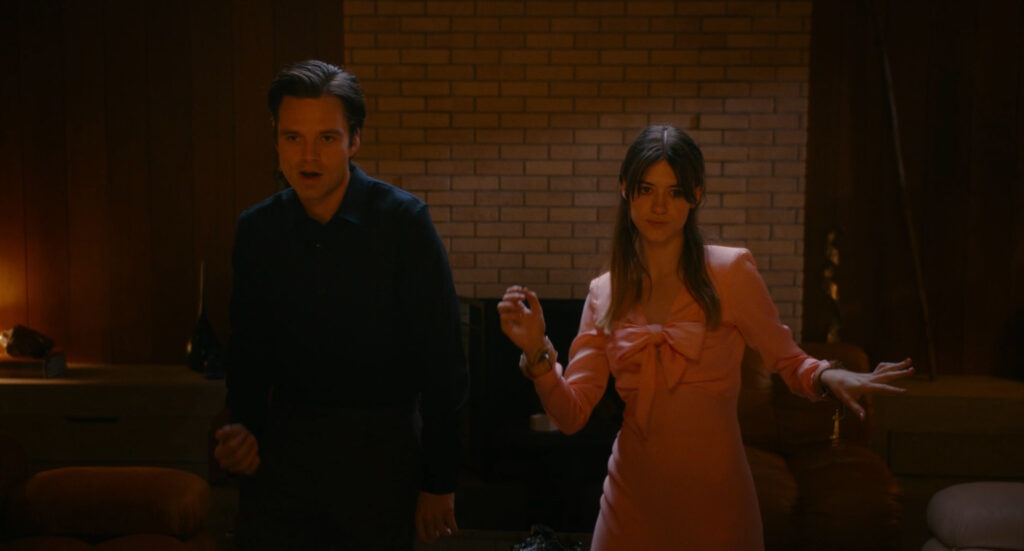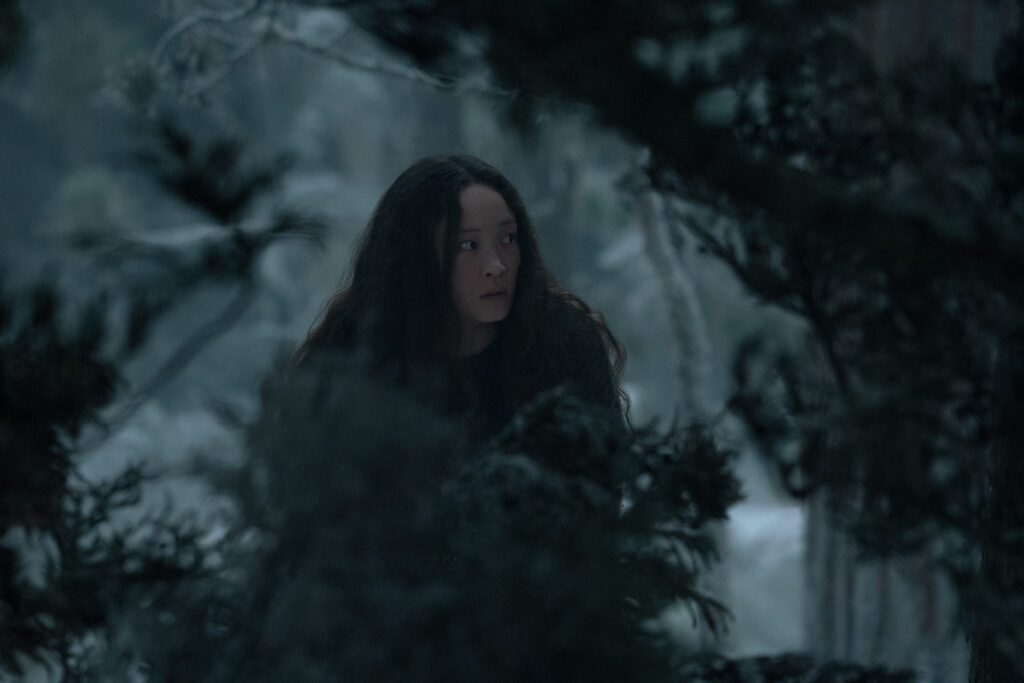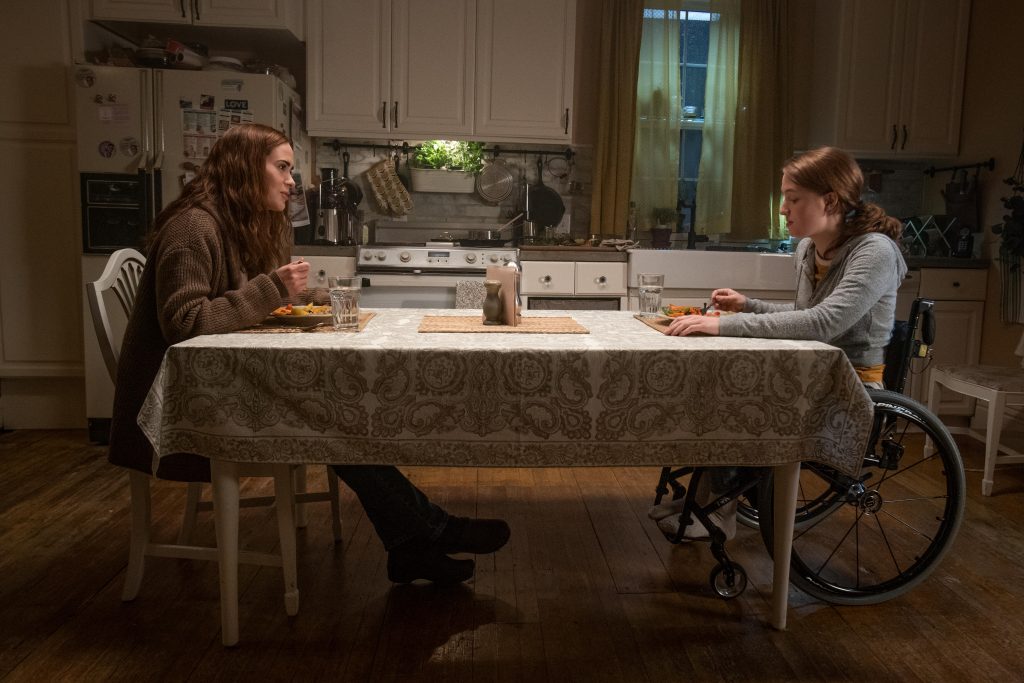June 17, 2023
by Carla Hay
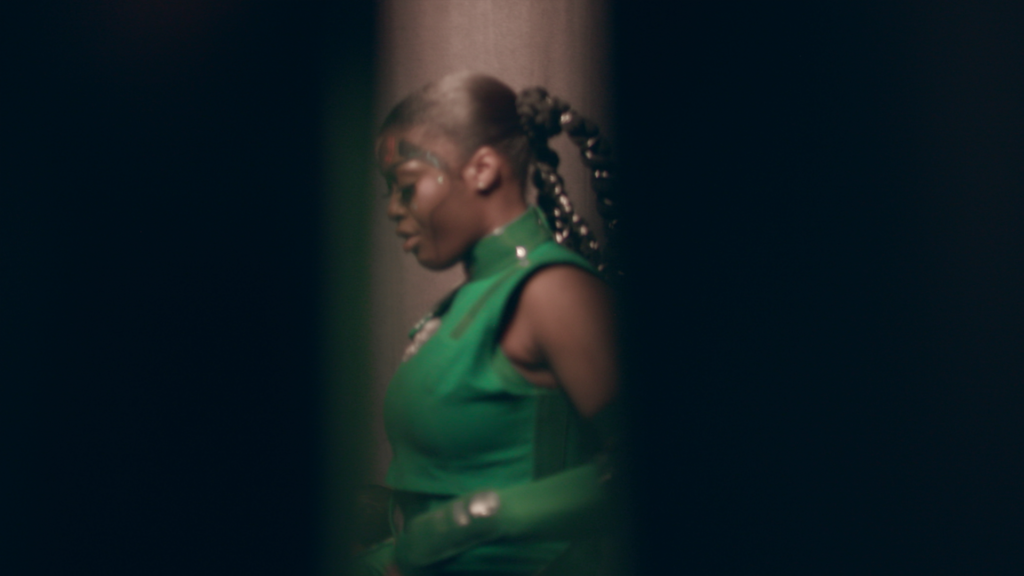
Directed by Chris Moukarbel
Culture Representation: Taking place from 2019 to 2021, in various parts of the U.S., the comedy mockumentary film “Cypher” features a predominantly African American cast of characters (with some white people, Asians and Latinos) representing the working-class, middle-class and wealthy.
Culture Clash: Real-life rapper Tierra Whack becomes the target of a conspiracy-theory cult.
Culture Audience: “Cypher” will appeal primarily to people who are fans of Tierra Whack, hip-hop culture and movies that poke fun at how social media plays a role in how celebrities are perceived and how they interact with fans.
“Cypher” is an inconsistent but mildly interesting mockumentary starring real-life rapper Tierra Whack as herself. The movie could have done more with its conspiracy cult storyline, but what’s there is fairly amusing. “Cypher” had its world premiere at the 2023 Tribeca Festival, where became the first mockumentary to win the festival’s Founders Award for Best U.S. Narrative Feature. It’s the top prize at the Tribeca Festival. And this top prize might lead viewers to believe that “Cypher” is a prestigious film. It’s not.
“Cypher” (written and directed by Chris Moukarbel) is nowhere near the level of an Oscar-worthy film. It’s not even the type of movie that will win any MTV Awards. It’s a moderately entertaining mockumentary to watch for people who like or have tolerance for hip-hop culture. Everyone else will be bored or turned off by this hit-and-miss comedy. As far as music-industry mockumentaries go, if 1984’s “This Is Spinal Tap” is the gold standard, then “Cypher” is like imitation bronze. Imitation bronze has a purpose, but just don’t expect it to be gold.
As many music celebrity mockumentaries tend to do, a great deal of “Cypher” shows the artist on tour. The movie’s title is explained by an on-screen caption saying that the definition of “cypher” is “a gathering of rappers freestyling together in a circle.” The beginning of “Cypher” has the obligatory backstory on Tierra Whack (yes, that’s her real name), who was born in 1995. For the purposes of this review, the Tierra Whack character in the movie will be referred to as Tierra. The real-life Tierra Whack will be referred to as Whack.
From an early age, as Tierra says in an “interview” for the movie, she was introduced to hip-hop by her mother. She also started writing poetry while still in elementary school, which led to her being a freestyle battle rapper in her hometown of Philadelphia. At age 15, one of her rap videos went viral, and she became an Internet sensation. (Nyla Naveah has the role of teenage Tierra.) Tierra got a record deal as a direct result of her Internet fame.
Just as in real life, “Cypher” shows that Tierra’s debut album “Whack World” (released in 2018) became a hit, and she became a fan fave of other music celebrities. The movie has snippets of artists such as Rihanna, Cardi B and Billie Eilish praising Tierra Whack. “Cypher” is supposed to take place from 2019 to 2021, but some of the timeline looks off in the movie.
Tierra’s entourage consists mostly of people under the age of 35. They include her co-managers Kenete Sims and Johnny Montina; hair stylist Jamilah Curry; makeup artist Camille Lawrence; and photographer Nick Canonica. A few music producers who are “interviewed” in the film include Warren “Oak” Felder and Jay Melodic. All of them play versions of themselves in “Cypher” and say the usual sycophantic things about Tierra that people would say about celebrities who are paying their salaries.
“Cypher” director Moukarbel can occasionally be heard (but is never seen) on screen talking to the people he’s interviewing for the movie. “This Is Spinal Tap” director Rob Reiner played mockumentary director Marty DiBergi in “This Is Spinal Tap.” Moukarbel does not make his presence in “Cypher” compelling or amusing. In other words, there is no Marty DiBergi-type director character in “Cypher.”
However, film producer Natalia-Leigh Brown portrays herself as a producer of this mockumentary. (In real life, Brown is not a producer of “Cypher.”) The Natalia-Leigh character is intensely driven and, in many ways, seems more in charge of the movie than the director. Viewers will either find her kind of hilarious or really annoying.
“Cypher” wastes some time with repetitive “goofing off on tour” footage from 2019. After a concert in Philadelphia, Tierra falls off the stage and mildly injures herself. She’s mostly embarrassed instead of hurt by anything physical from this tumble. After the concert, she and her entourage are hanging out at a diner when Tierra meets a 58-year-old woman named Tina Johnson Banner (played by Chris Anthony), who claims to be a devoted fan of Tierra.
Tina seems shy and hesitant at first when she approaches Tierra, who invites Tina to sit next to her at the table. This scene cuts back and forth between the conversation that Tina and Tierra are having by themselves and the innocuous conversation that members of Tierra’s entourage are having at a nearby separate table. It isn’t long before Tina starts to get weird and makes Tierra feel uncomfortable.
Tina gives a rambling monologue about sounds influencing people’s thoughts. She says there’s a video that explains everything. At this point, Tierra is done with the conversation and politely but firmly tells Tina that it was nice meeting her, but Tina needs to leave Tierra alone now. Tina is reluctant to leave, but before she does, Tina makes these cryptic comments to Tierra: “Watch the video” and “Don’t let them use you.”
At first, Tierra thinks this was just a harmless encounter with an offbeat fan. But then, Tina sends Tierra a bizarre video about belonging to a group called Warren, which has worked for years to decipher a document called the True Vision Manuscript that they discovered in the early 20th century. The True Vision Manuscript was supposed to be written by a secret society in Europe called Oculus, an offshoot of the Freemasons. Part of the True Vision Manuscript translation says that there’s a “chosen one” who has to pluck an eyebrow hair to gain true powers.
It’s at this point in “Cypher” that viewers will be turned off from or intrigued by finding out more about this mystery. And things get weirder. Tierra finds out that Tina has gone missing. Tina’s young adult daughter Marigold Johnson (played by Bionca Bradley) has been going on social media blaming Tierra for Tina’s disappearance, because Tierra was the last-known person to have seen Tina. Police start to investigate.
Tierra wants to find out the truth too, partly to clear her name, and partly out of curiosity. During this investigation, Tierra and her entourage find videos online or elsewhere, showing that Tierra and her entourage have been filmed with hidden video cameras by an unknown stalker or stalkers. The rest of the movie then becomes a tangled web of solving the mystery of not only Tina’s disappearance but also the translation of the True Vision Manuscript.
It should come as no surprise that Warren is a cult-like group that’s obsessed with the True Vision Manuscript, which is believed to hold the answers to a conspiracy. Tierra says she doesn’t believe in conspiracy theories. Where “Cypher” falters a little bit is that it can’t quite keep the momentum of the mystery going in a consistent way, resulting in a shift in the movie’s tone that’s sometimes awkward. One minute, Tierra is acting like a hip-hop Nancy Drew. The next minute, she’s preoccupied with recording her next album.
Luckily for “Cypher,” Whack is a natural actress who often holds scenes together when other people in the scene are acting a little too fake and corny. It might seem easy to play a version of yourself in a movie, but it’s actually much harder to do this type of performance in a mockumentary. Except for the over-the-top conspiracy cult part of the plot, much of this mockumentary could pass for a real documentary.
The choppy editing and shaky camera work in “Cypher” is intended to make the movie look hastily compiled, as if the information in the movie is too urgent to wait for more polished editing. “Cypher” is not a must-see film for mockumentary enthusiasts. However, it’s worth checking out for viewers who are up for a fairly bizarre ride that mixes music-industry shenanigans with conspiracy-theory investigations.
UPDATE: Hulu will premiere “Cypher” on November 24, 2023, the same date that the movie will premiere in select U.S. cinemas.

